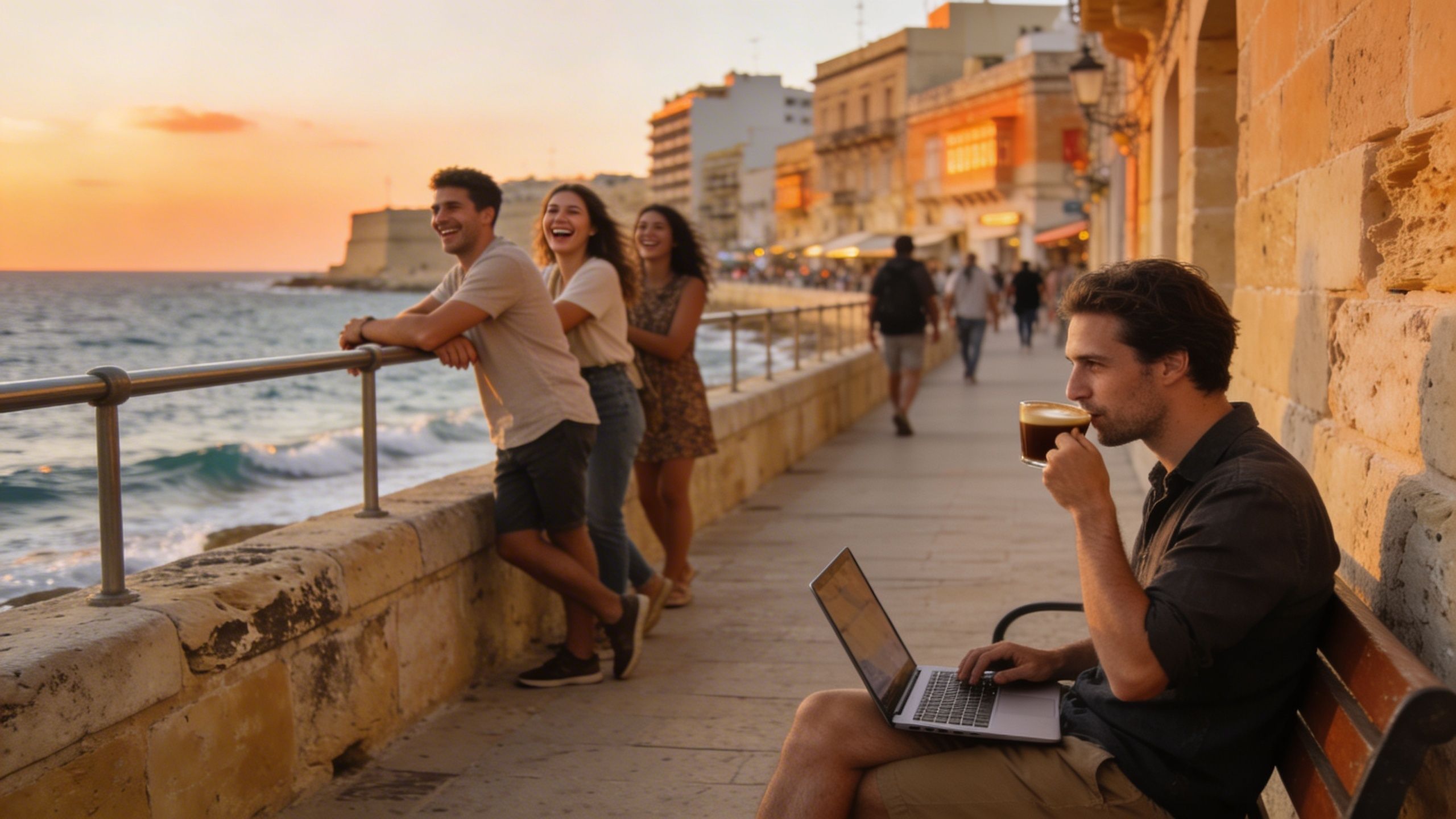The French Coastal Town Buyers Skip — Remote‑Work Value Play
Overlooked French coastal towns combine lower entry prices, growing coworking networks and authentic daily life—test during shoulder season and prioritise broadband, energy rating and flood checks.
Imagine sipping an espresso on a sun-warmed terrace in a coastal French town where the seagulls outnumber the tourist brochures, broadband is fast enough for video calls, and a lively market still sets the rhythm of your week. Many international buyers scroll past these places because guidebooks tag them “touristy” or “seasonal.” But recent data and local trends show a different story: these overlooked coastal communities often combine value, workspace-friendly homes, and authentic French daily life.
Living the coastal-France life beyond the postcard

These towns—think parts of the Vendée coast, Atlantic-facing pockets near La Rochelle, or quiet coves west of Marseille—feel like a movie set until you open your laptop and actually work. Streets at 9am are punctuated by boulangeries, markets and locals swapping news; by 2pm you’ll spot laptops at cafés and surfers rinsing off after an afternoon session. Property prices here are often 30–60% lower than the Riviera, yet many towns now show improved rail links and coworking options that make everyday life practical, not just picturesque. (See regional price context.)
Neighborhood spotlight: The overlooked harbour quarter
Walk the harbour quarter at dawn and you’ll know why locals stay: fishermens’ nets, an old café where the owner knows everyone’s name, and narrow streets with apartments that come with terraces facing the water. These are not flashy luxury developments—these are lived-in homes with character and surprisingly good natural ventilation and light. For remote workers, a compact terrace plus a high-quality fibre connection often trumps a big inland garden when it comes to day-to-day happiness.
Food, markets and social life: where locals actually eat
- Morning market at Place du Marché, oysters at a tiny quai bistro, weekend pop-up concerts under plane trees—the social calendar here is anchored in everyday rituals rather than tourist spectacles. Coworking spaces and café work corners are increasingly common as regional demand grows, meaning your workday can be social and productive without a long commute.
- Hidden-gem cafés: look for places named after locals (Le Café de Jeanne, Bar du Port) rather than sleek chains.
- Markets to know: Saturday morning poissonnerie, Thursday vegetable market, and a monthly artisan fair that’s actually for locals.
Making the move: practical realities that keep the lifestyle intact

Dreams meet numbers: after a long cooling period, French house prices returned to growth in Q1 2025, so timing and location matter. For coastal towns that many buyers skip, prices can still be stabilised or slowly rising—meaning you get lifestyle upside with lower entry costs. But don’t confuse lower list prices with fewer pitfalls; check energy ratings, flood maps, and connectivity before you sign.
Property styles that work for nomads
Stone-built apartments with terraces, compact townhouses with courtyards, or renovated fishermans’ flats—choose what matches your routine. If you work from home, prioritise fast fixed broadband (fibre where available), a quiet corner for a standing desk, and an outdoor spot for breaks. Renovations are common—factor in insulation and heating upgrades where needed, especially for winter months.
How local agencies actually help (and what to ask them)
- Ask agencies these lifestyle-first questions: 1) Exact broadband options and measured speeds at the property; 2) Neighbourhood noise rhythms by season; 3) Local transport reliability (ferry/train/bus); 4) Recent renovation histories and energy ratings; 5) Community groups or coworking meets you can plug into.
Insider knowledge: expat truths and seasonal realities
Expat life here is quieter and slower than city centres. That’s the point. Locals expect a different rhythm—shops closed Sunday afternoons, festivals that dominate a week in July, and neighbours who value privacy. Embrace the tempo rather than fight it, and your social life will be rich: you’ll be known at the market, invited to communal meals, and learn the small, essential French phrases that grease the wheels of daily life.
Cultural integration and language in practice
A few polite French phrases and an interest in local traditions go far. Join a market morning, volunteer at a fête, or attend a municipal council meeting if you want to understand how decisions (like parking rules or beach access) get made. These small acts build trust—and those relationships are often the quickest path to off‑market deals or trusted local tradespeople.
Long-term lifestyle and property sustainability
- Consider these factors for a sustainable coastal life: - Energy upgrades for older stone homes (thermic insulation, better heating). - Flood and erosion mapping—ask the mairie for PPRN/PPRL documents. - Access to year-round services (medical, banking, postal). - Local rental demand if you plan to occasional-rent during high season.
Practical next steps: visit in a shoulder month (April or October), test your work setup for a week, and meet a local agent who specializes in long-term rentals and second homes. Agencies that understand both the town’s pulse and technical checks (broadband, flood risk, energy class) will save you months of hassle.
Conclusion: Skip the checklist that says “avoid tourist towns.” Instead, pack a testing mindset: research recent price trends, verify connectivity, live there for a week in shoulder season and talk to locals. You might find the exact French life you wanted—less flashy, more authentic, and priced for the long run. When you’re ready to take the leap, bring a local-savvy agent and a short checklist: speeds, energy class, flood plan, and community access. That’s how the skipped town becomes home.
Norwegian who has helped 200+ families relocate from Oslo to Spain; expert in relocation services and community integration.


